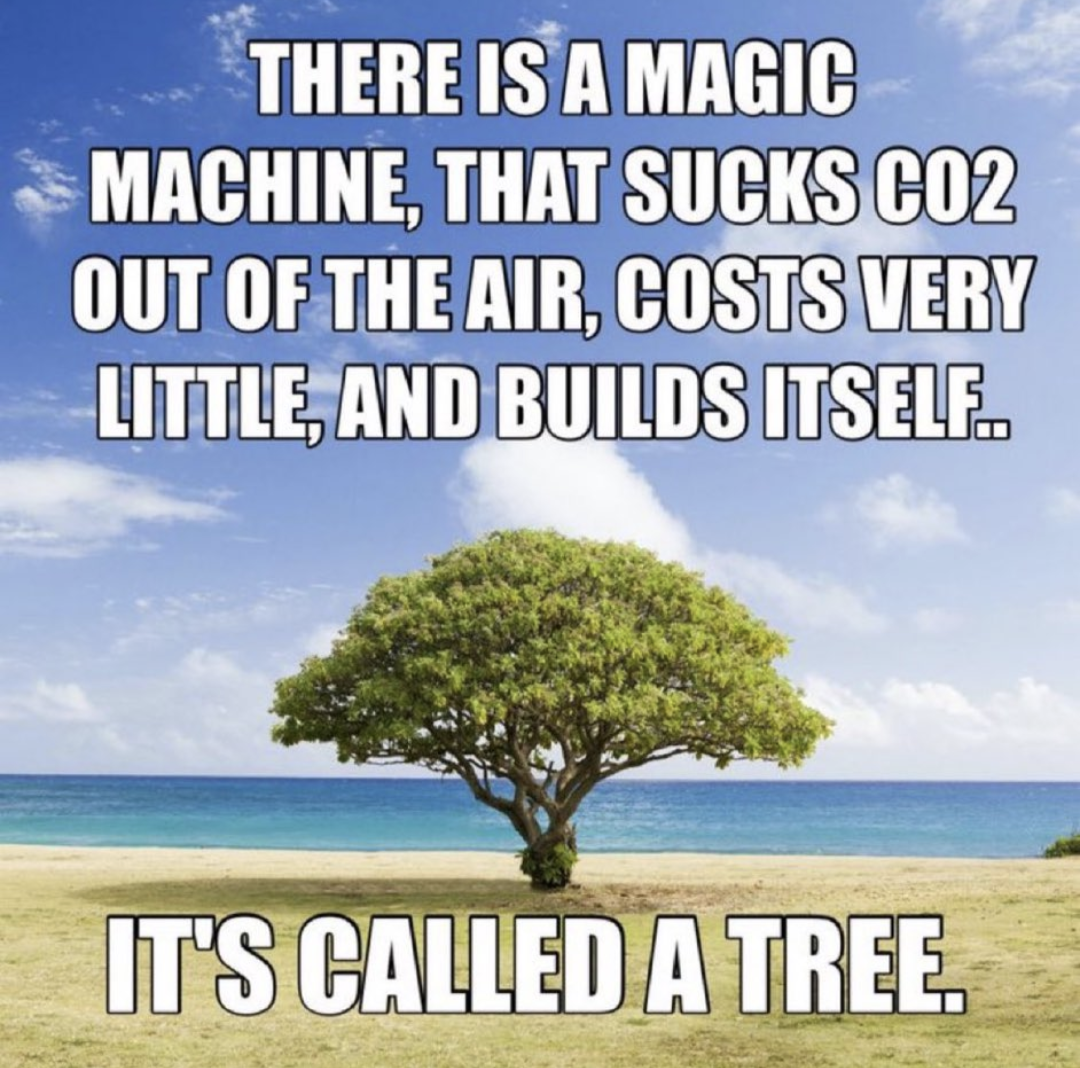this post was submitted on 30 Jul 2024
614 points (93.4% liked)
Nature Enthusiasts
801 readers
1 users here now
For all media, news and discussion focusing on nature!
The rules for posting and commenting, besides the rules defined here for lemmy.world, are as follows:
1-No advertising or spam.
2-No harrassment of any kind.
3-No illegal or NSFW or gore content.
founded 1 year ago
you are viewing a single comment's thread
view the rest of the comments
view the rest of the comments

You make a good point. If there were no potential solution, trees (i.e. sustainable agriculture) would be the best solution. It would take a few hundred years but we would get back to pre-industrial levels at zero emissions.
The potential solution is direct air capture. Although there are many forms, I am fond of the method proposed by Klaus Lackner. By making a large number of CO₂ scrubbers, as opposed to a few very large ones (like Climeworks), the economics of carbon removal get very easy, very fast.
A 1 m² area that gets an average 2 m/s breeze through it sees about a gram of CO₂ pass through every second. This is about 100 kg of CO₂ per day. So let's make a machine that catches CO₂ from a 2 × 5 m area and catch 1 t per day, or 300 t per year. For this machine to pay off its carbon debt, it's going to need to be around for a while, say 10 years. What happened during those 10 years? 3 kt went out of the atmosphere for good. If you liquefied the CO₂, this would fill 3 McMansions.
Lackner seems to think we can build this machine for $100k. Now we have a price of $30/t of CO₂ captured. As it stands, we need to get about 1,000 Gt of CO₂ out of the atmosphere to stabilize the climate, so we need to build $30T worth of these machines. How could we possibly afford that? Well, we would spend ~$1T on this per year for about 30 years.
Where would that kind of money come from? Sacrifices would be needed, it's true. I think the biggest would be giving up on war. Global defense budgets add up to this scale of funding, and if the nations of the world decided to put an end to war, we could use the peace dividend to pay for the restoration of the climate. Perhaps there wouldn't be any other sacrifices needed at all.
If this seems unrealistic to you, that's ok too. We can still keep war and do things the slow way or (more likely) not do them at all. I suppose a decade-long nuclear winter would also do wonders for global cooling and emission reductions. Personally, though, I would prefer world peace and direct air capture to stabilize the climate.
I think, from your post, you would agree. If we are going to fight, we should fight climate change, not each other, no?